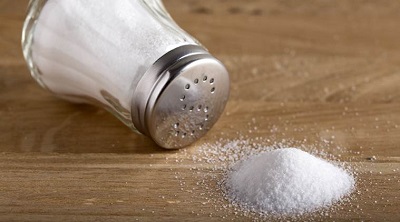The need to pee at night (nocturia) — which affects most people over the age of 60 — is related to the amount of salt in your diet, according to new research. According to Science daily.
Most people over the age of 60 (and a substantial minority under 60) wake up one or more times during the night to go to the bathroom. This is nightime peeing, or nocturia. Although it seems a simple problem, the lack of sleep can lead to other problems such as stress, irritability or tiredness, and so can have a significant negative impact on quality of life. There are several possible causes of nocturia. Now a group of scientists have discovered that reducing the amount of salt in one’s diet can significantly reduce excessive peeing — both during the day and when asleep.
A group of researchers, led by Dr Matsuo Tomohiro, has studied salt intake in a group of 321 men and women who had a high salt intake and had problems sleeping — people tend to have a higher than average salt intake. The patients were given guidance and support to reduce salt consumption. They were followed for 12 weeks, and salt consumption measured biochemically.
223 members of the group were able to reduce their salt intake from 10.7 gm per day to 8.0 gm/day. In this group, the average night-time frequency of urination dropped from 2.3 times/night to 1.4 times. In contrast, 98 subjects increased their average salt intake from 9.6 gm/night to 11.0 gm/night, and they found that the need to urinate increased from 2.3 times/night to 2.7 times/night. The researchers also found that daytime urination was reduced when salt in the diet was reduced.
This reduction in the need to go to the bathroom at night caused a marked improvement in the quality of life of the participants, as measured by the standard CLSS-QoL questionnaire.
Dr Tomohiro said, “This is the first study to measure how salt intake affects the frequency of going to the bathroom, so we need to confirm the work with larger studies. Night- time urination is a real problem for many people, especially as they get older. This work holds out the possibility that a simply dietary modification might significantly improve the quality of life for many people.”
Commenting, Dr Marcus Drake, said: “This is an important aspect of how patients potentially can help themselves to reduce the impact of frequent urination. Research generally focusses on reducing the amount of water a patient drinks, and the salt intake is generally not considered. Here we have a useful study showing how we need to consider all influences to get the best chance of improving the symptom.
N.H.Kh

